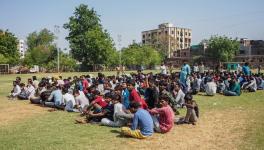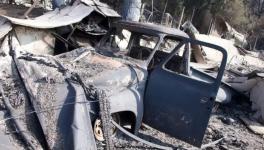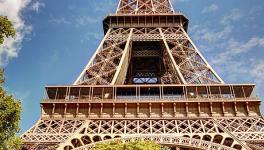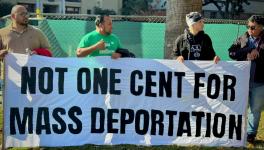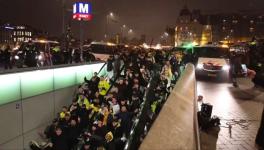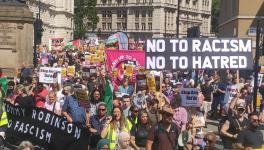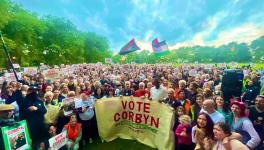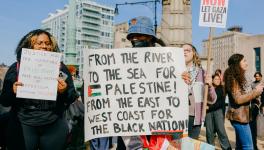How Southall Community Alliance is Trying to Preserve ‘Urban Commons’
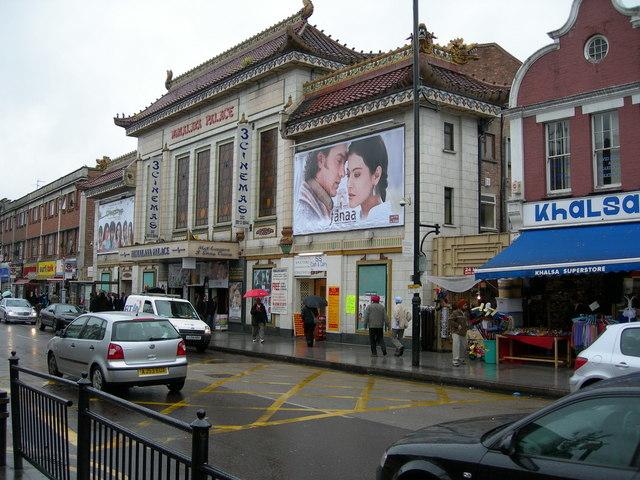
Image Coutesy: Wikipedia
‘Urban commons’ quintessentially are cultural and natural resources accessible to all members of a society, such as air, water and a habitable earth. If one thinks that in the neo-liberal order of things, it is just India or the developing world where the policy direction is to privatise ‘urban commons’, then a visit to the First World would change such an opinion.
The Southall Town Hall in West London, which offers services to a diverse community after the Southall municipality was amalgamated with the Borough in the late 1950s, was offered for sale. The buyer was none other than the Vishwa Hindu Parishad (VHP), an extreme Right Wing organisation. The seller, of course, was the municipality, and the resisters were the people led by the Southall Community Alliance. Mahender Pal, a member of the Indian Workers’ Association (IWA), an almost 80-year-old organisation responsible for raising the voices of Indian immigrants, fought the case in court and has been able to hold back the sale. Before the town hall, the Southall Police Station was sold.
There is hardly any common space available in the city for the different communities to interact or work together. Southall Town Hall provides such a space. The ‘urban commons’ do not just restrict ownership of common property but also promote community participation in governance of resources. Unlike the neo-liberal definition of governance through user charges and privatisation of resources, ‘urban commons’ advocates heightened democracy.
The Southall Community Alliance (SCA) is an umbrella of over 100 voluntary organisations, inter-faith groups and such other representatives, all so essential in a space that was mired with racist incidents just a few decades ago. Harsev Bains, an IWA leader is the chairperson of SCA since 1983, two years after its birth in 1981. SCA holds annual elections for the chairperson and executive body.
According to Bains, the alliance provides a voice to the community, especially the marginalised. Urban spaces lack such linkages, especially in a nuclearised family system in the developed world, such as the United Kingdom. Bains describes this as part of the ‘urban commons’, which inculcate a sense of unity among people hailing from different origins and different parts of the world, professing various religions.
There is a continuous threat to these urban common spaces. The ‘ruling order of the day’ does not intend to promote such spaces and intends to break the unity of people so that they go back into their faith groups instead of coming together in such alliances, which are inter-faith.
This (the role of the state apparatus) is a serious challenge in the urban realm being faced by progressive groups. How can integration take place in such an environment, said Bain, adding that the barriers need to be broken down for reclaiming ‘urban commons’. If people go back to their faith groups, it increases the tensions between communities and seeds of newer forms of racism get sown. In Derbyshire, the sprouting of many groups of native communities with their own narrow agendas is a pointer to such developments.
The SAC has an interesting evolution. It evolved out of struggles against fascists in the region. It was formed in 1981 after the famous crackdown of 1979 in which hundreds of people were arrested and Blair Peach, an activist from New Zealand who had come to express his solidarity for people’s unity against the fascists, was killed by the police. The fascists emerged during that period and the government, instead of containing them, suppressed the voice of the people of Southall. People representing different faith groups, mainly immigrants, fought bravely and articulated the unification of their community actions through the formation of this ‘alliance’.
The issues that the SAC rasies are not just related to the psychological problems of the people but also about civic amenities. The neo-liberal form of governance in the UK is forcing closure of many facilities provided in the past to the young people. Their playgrounds are being handed over to builders for construction of houses. The SAC has fought against such moves and was able to save some ‘urban commons’.
Bains said the Victorians built the infrastructure which is now being sold by the present regimes. The libraries were offered for sale, but were prevented by SCA’s initiative and handed back to the community. Then there was closure of a local hospital which was resisted and restored back to the people.
The Alliance also advocates issues related to environment and mobility in the city. Something that India and Indian cities desperately require. The focus is on electric mobility by raising demands for more charging points and easy access to public transport.
The Heathrow third runaway is to be constructed, which will severely affect the environment, say environment groups. Heathrow being very close to Southall is an issue that is under discussion within the alliance. Though there is also a counter argument that the third runway would create nearly 75,000 jobs.
One of the newer challenges that cities in England face includes the outcome of Brexit. There is simmering feeling even in some Asian groups against migrants, with some Asian leaders openly becoming victims of propaganda of Islamophobia. They forget that they, too, came to the UK as immigrants. The racists are coming out openly and aggressively. They hold demonstrations advocating Brexit and simultaneously spewing venom against the migrant population.
Hence ‘urban commons’ are not just about preventing the privatisation of the town hall but about the means to govern collectively, which is facing a threat in the present circumstances.
The writer is Former Deputy Mayor, Shimla, and is currently visiting the United Kingdom.
Get the latest reports & analysis with people's perspective on Protests, movements & deep analytical videos, discussions of the current affairs in your Telegram app. Subscribe to NewsClick's Telegram channel & get Real-Time updates on stories, as they get published on our website.









